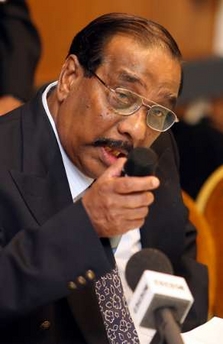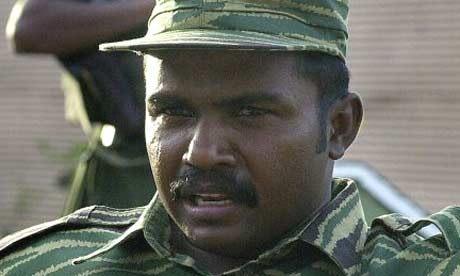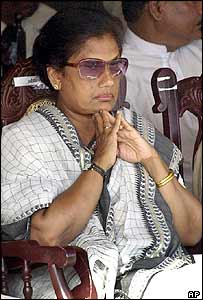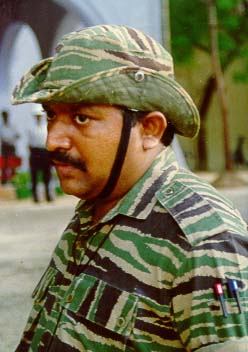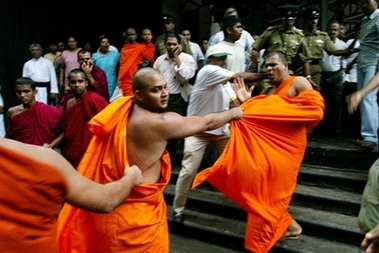–

Salma Yusuf
Central to post-war reconciliation efforts is undoubtedly the political aspect. However, there exists in Sri Lanka, four key strategic points of intervention which ought to be mainstreamed into the national reconciliation project by all stakeholders involved in furthering the imperative of nation building.
Politics By Other Means
At a cursory glance, the links between sport and inter-state reconciliation seem abundant. Some pundits credit Ping-Pong Diplomacy with facilitating the subsequent thaw of U.S.-China relations in the 1970s. Others point to Table Tennis Diplomacy and the attempted Olympic Diplomacy as effective difference-bridges between the two Koreas in the latter decades of the 20th century. More generally, there has been a widely held sense that sports, as Jeremy Goldberg states in his ground-breaking work titled ‘Sporting Diplomacy: Boosting the size of the Diplomatic Corps,’ serve as “a ‘safe’ way to ease a country out of isolation, acting as a first step of engagement.”
This transformation of conflict-laden bonds is not limited to inter-state rivalries. In 2007, the apparent success of the Côte d’Ivoire’s national men’s football team in rallying the country and ending a five-year long civil war between Northern rebels and the government-controlled South was hailed as a testament to the remarkable power of sport in peace-building.
Judging from both the Ivorian example and the images of a celebrating multi-ethnic Iraq following that country’s victory in the Asian Football Confederation Championship, it would seem that sport has at least a temporary ability to create intra-state linkages between conflicting factions.
In both Côte d’Ivoire and Iraq which experienced either “cold” (potential) or “hot” (open and violent) inter-state and intra-state conflicts, there have been concrete examples in which at least a segment of those involved point to sport as a significant factor in obtaining reconciliation.
Acknowledging the power of sport as both a strategy and tool for healing and reconciliation, national cricketing heroes in Sri Lanka came forward last year, in what was hoped would provide impetus for further and future sports for reconciliation projects in the country. The Murali Harmony Cup 2012 got underway on the 8th of September 2012 and concluded on the 12th of September 2012 ahead of the International Cricket Council ( ICC ) World T20 Series in Sri Lanka.
All matches were played at five post-conflict school venues across Sri Lanka’s northern regions of Mankulam, Jaffna, Kilinochchi, Vavuniya and Mullaitivu and were actively supported by the presence of Sri Lanka’s star national cricketers.
The event was designed as a catalyst for much-needed cricket development in the under-resourced schools of the war-affected northern and eastern provinces which will serve as a platform for involvement in national sporting events.
While sports by itself cannot start the process of reconciliation, it can prove invaluable in a broader programme of national reconciliation that is robustly supported by favourable governmental policy.
An example of such is seen in the recent work of the Department of Sport and Recreation of the Government of Western Australia which is the lead agency responsible for putting into practice government policy and initiatives relating to sport and recreation. Accordingly, the Reconciliation Action Plan 2008 – 2009 which specifically supports the development of a diverse sport and recreation system that encourages participation, develops talent and contributes to the health and wellbeing of marginalized communities and people with the intent of contributing to reconciliation in the country, has been promulgated. Sri Lanka, not unlike Australia, is a sports loving nation. What is required, therefore, is to harness the spirit and enthusiasm for sport that exists across ethnic and communal divides, and channel it into avenues that can foster collective healing and nation-building.
Has the time come for Sri Lanka to use the unifying power of sport to devise a reconciliation plan, similar to models used in countries such as Australia, which would in turn fit into the broader framework of national reconciliation efforts?
A Social Conscience While Generating Profit
In Sri Lanka, there has begun a national momentum to raise awareness on the need to develop the social conscience of the private sector, following the conclusion of the three-decade war that ravaged the country. In this context, what is required is a more radical reprioritizing of the national agenda in the post-war situation to socio-economic and political aims to facilitate such a progressive movement.
What must be recommended is the adoption of investment in four areas as critical to a strategy for contributing to reconciliation and peace-building: First, livelihood and income generation activities; second, training and empowerment through capacity building in soft-skills including those that increase innovation, entrepreneurship and employability; third, a need to engage directly with individuals and communities in war-affected regions of the country and finally, to ensure that all endeavours undertaken embrace the vision of preventing economic stagnation which has been at the root of most political conflicts.
The attractiveness of investing in the north of the country must not be forgotten in this endeavour. The availability of rich natural resources in the region such as limestone, land, groundwater, sea salt, fisheries and agriculture could be tapped into in order to create industries, income generation and livelihood opportunities.
Additionally, the market demand for produce and jobs is increasing with the return of formerly displaced persons to their original habitats. Further, there exists potential for development of tourism-related infrastructure as Jaffna is gaining increasing currency as a tourist destination, both by locals and foreigners.
It was recorded that with the removal of travel restrictions to the north of the country, a total of 31,000 persons had travelled to the north in 2012 alone. This in itself is a testament to the promise for both local and foreign tourism in the north of the country which would benefit immensely from private sector investment.
The business community is well placed for developing capacity of potential entrepreneurs by playing a major role in skill building. Hence, recognition of such a role for the private sector and business community must be taken seriously. Although engagement of the business community has been acknowledged as essential for peace-building by both the World Bank and the United Nations, a system of rewards to lure early private sector entry has yet to be devised, at the international and national levels.
In Sri Lanka, the need for economic prosperity or at least movement away from abject poverty and economic hopelessness is pivotal to moving towards reconciliation and peace building if the spirit of peace is to not falter and be extinguished. It is the private sector that can provide in the long-term economic growth opportunities, jobs and wealth creation.
The Future Has Arrived
Given that both the ignition of the ethnic conflict and the JVP insurrections have stemmed from our Universities as well as from other sections of the youth population, a national strategy for youth engagement in reconciliation must be considered.
Increased investment in the country’s most potent social capital becomes imperative in post-war efforts at development, security, and reconciliation and peace-building. In contrast to most countries in the developing world, the case for investment in youth is very strong particularly in a country like Sri Lanka which records a high literacy rate of over 90%. This means that there already exists a resource pool with a degree of skills and knowledge which is an ideal springboard to move society to a largely middle – income status.
There are more reasons why youth have special power and potential in peace-building. First, young people are more open to change – Young people are searching for new ideas and open to new challenges while adults have already formed their dogmatic discourses.
Second, young people are future-oriented. Since they have more time ahead, they are willing to try alternatives and are more bound to “forget” the past than those who were directly involved in a painful moment of history.
Third, many revolutions were started and led by young students or activists. Students often have more time to think, read, meet colleagues and develop ideas. They also have more time to engage different activists groups. Students historically have always been in the vanguard of social change.
Fourth, youth also create ideas that solve old problems in innovative ways. Youth seek for alternative roots of power and influence.
Fifth, young people are also less experienced and willing to try new adventures. This risk-taking nature combined with a belief in a cause and a situation that cannot get worse pushes them to be courageous, especially when others believe that change is impossible.
Sixth and perhaps the most important case for calling for a role for youth in peace building is because a peace agreement’s endurance depends on whether the next generations accept or reject it, how they are socialized during the peace process, and their perceptions of what that peace process has achieved. Child and youth dimensions are central to the structural issues of peace building – such as inequality, poverty, and unemployment.
In post-war Sri Lanka, youth experience a unique situation – they undergo a dual transition, that is, from youth to adulthood against a larger backdrop of the country’s conflict to peace transition. This dual transition is particularly challenging for the youth of our country and must be taken seriously in all national plans and programmes.
Five key areas need to be targeted for ensuring that youth are potent peace-builders in Sri Lanka in such a national strategy: The perception of youth as being granted equal opportunities and space for growth and development is critical.
In addition to job training and employment training for youth, young people should have access to training opportunities in conflict transformation, mediation, negotiation skills, facilitation of group decision making processes, project and organisational management and other themes of their interest and relevant to their social contexts.
Meaningful participation by the youth in political, inter-ethnic and cultural dialogue must be encouraged at all levels of social interaction. Youth should thereafter be given responsibilities according to their capacities and their contributions taken seriously.
Last and certainly not the least is the need for a sound value-based education for youth of the country. As famously said by the renowned educator Maria Montessori,’ Establishing a lasting peace is the work of education; All politics can do is keep us out of war’.
The X-Factor
The State has shown interest in working with war widows, female single headed households and military widows. These women need to be helped further with assistance to rebuild their lives, gain livelihood options and other basic amenities. They must also be empowered so that their voices are heard in the development drive taking place in the conflict affected areas.
Livelihoods are considered the most important issue in post-conflict Sri Lanka. The Giritale consultation held in 2010 recommended the following to strengthen livelihood options for women: skills training in non-traditional occupations for women; the Presidential Task Force in the Vanni to have a Gender Advisory Team; create networks for exchange and sale of seeds and farm produce among women’s groups working in agricultural and fisheries sectors; supporting traders in the north and east to carry out business and to travel and engage in trade and commerce outside of the north and east; and develop credit and loan services that will correspond to the specific needs of women in resettled communities and that will give them access to the material and financial resources they need to build up their livelihoods.
Ultimately, the call has to be for all stakeholders involved in rebuilding the country to accept and realize that women play an important role in structuring the very nature of peace. Women are not merely a vulnerable group, they are empowering as well. They can bring about change at local level through diverse means. What they now need is to be given the opportunity and space to do so.





